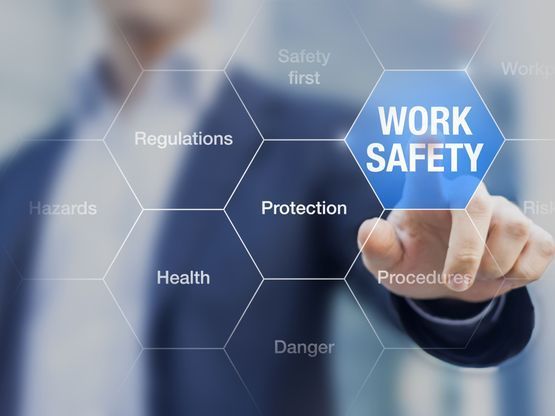OCCUPATIONAL MEDICINE
As occupational doctors, information, training and prevention are at the heart of what we do CMMA

Useful links
Corporate medicine
Carried out in the company or at the CMMA, the complete clinical examination is followed by a blood sample targeted at exposure to risks. The results are available the same day at the CMMA and are sent to the attending physician with the employee's agreement. We offer biological, radiological, electrocardiographic examinations, respiratory function tests, blood and urine tests. These examinations make it possible to carry out an overall health assessment which complements information such as: personal history, lifestyle habits and vaccinations. We analyze the work environment in dialogue with Health and Safety managers and HR department.
Definition
Occupational medicine is the medical speciality concerning the relationship between employees’ work and their health.
The employer calls on the occupational doctor, a specialist in health and safety at work, to assist and advise them on preventing occupational risks and meeting theirlegal obligations.
The occupational doctor is a preventive healthcare doctor whose role is to maintain and promote the physical, mental and social well-being of employees.
There are three levels of prevention:
- Primary prevention: reducing or even eliminating occupational risks liable to give rise to consequences for health
- Secondary prevention: early detection of work-related health problems
- Tertiary prevention: limiting the impact on health, preventing relapses and helping people to stay in or return to work
This relates to the prevention of musculoskeletal disorders, chemical risks, psycho-social risks, the work environment and so on.
Remit
The remit of the occupational doctor (specialising in health and safety at work) is to:
- Issue mandatory fitness-to-work certificates
- Identify and assess health and safety hazards on-site and assess measures for preventing occupational risks
- Advise the employer and employees on health and safety at work and, in particular, preventative measures, hygiene, substitutes for hazardous substances or procedures, and workstation improvements
- Brief the employer on matters relating to occupational medicine
- Provide medical supervision for workers and assess their fitness for the job
- Propose adaptations and reassignments as needed to keep employees in work or help them to return
- Organise first aid
- Contribute to the analysis of accidents at work and occupational diseases, the examination of workstations, and reports on accidents at work and occupational diseases
- Train staff and qualified individuals in preventing occupational risks
Health and well-being at work through our services
Promoting health in the workplace
- Screening and treatment for addictions to tobacco, alcohol and psychoactive substances
- Maintaining vaccination coverage
- Screening and treatment for sleep disorders, particularly in the case of shift work
- Physical activity and sport, correct back posture and handling, protection against noise, protection against toxic substances, prevention of musculoskeletal disorders
Assessing fitness to work and to remain in work:
- At the time of the pre-recruitment medical examination
- Upon an employee’s return to work subsequent to an accident that alters their capabilities
- With the onset of partial disability involving adaptations to the workstation, reassignment or adjustments to the job description.
Assessing psychosocial risks specific to the workplace environment:
- Night work, shift work, irregular periods of productivity, hypervigilance for dangerous environments, exposure to toxic substances...
Services
Company visits
Business advice
Vaccinations
Screening
Professional diseases
Awareness training
Job studies
Medical exams
Professional reintegration
Work accidents
First aid


